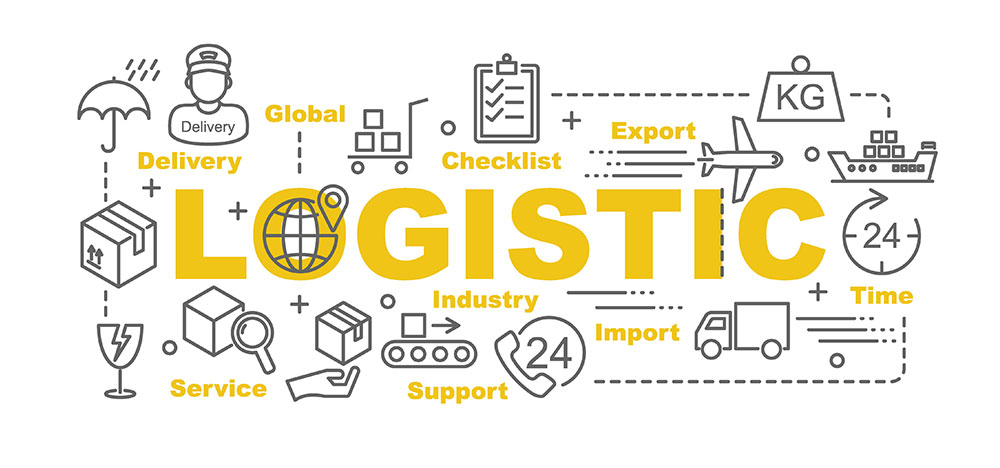Prior to the COVID-19 pandemic, the U.S. transportation system moved around 51 million tons of goods worth approximately $51.8 billion each day. The supply chain issues caused by the pandemic have shown all Americans just how important shipping is to our nation’s economy and to our individual happiness.
However, many people don’t understand the shipping industry’s complex vocabulary. For instance, the terms shipping and logistics are often used interchangeably when they don’t, in fact, mean the same thing at all. Continue reading to learn more about how these vital processes work together.
What Is Shipping?
Shipping refers to the physical act of transporting goods or materials from one location to another. Although the root of the word is ship, the method of transportation doesn’t necessarily involve a boat.
The term shipping is used whether items are being delivered by ship, train, truck, or plane. There are also different types of shipping, such as same day or overnight for expedited service, temperature-controlled for perishable items, hazmat for dangerous goods, etc.
What Is Logistics?
According to the Council of Supply Chain Management Professionals (CSCMP), logistics is “the process of planning, implementing, and controlling procedures for the efficient and effective transportation and storage of goods including services, and related information from the point of origin to the point of consumption for the purpose of conforming to customer requirements. This definition includes inbound, outbound, internal, and external movements.”
As the definition demonstrates, logistics is an essential part of supply chain management and involves much more than shipping. It also includes purchasing, inventory management, customer service, and more. As some industry experts put it, logistics takes care of the seven Rs – getting the right quantity of the right product at the right price to the right customer at the right place in the right condition at the right time.
What Are Shipping Logistics?
In simple terms then, shipping logistics is the piece of the overall logistics process that manages the transportation of goods and raw materials between locations. Shipping logistics may involve a variety of services including shipment scheduling, customs brokerage, ocean or air freight management, intermodal freight planning, freight forwarding, procurement, and warehousing.
What Are the Main Types of Logistics?
There are three types of logistics: inbound, outbound, and reverse. Shipping logistics is an integral part of all three.
Inbound logistics involves the flow of resources coming into a business and may include the management of suppliers, costs, inventory, and transportation. Procurement is often a large part of the inbound logistics process.
Outbound logistics refers to the activities necessary to deliver goods to their final destination. Because customer satisfaction is the ultimate goal, the management of distribution systems plays an essential role in outbound logistics.
Reverse logistics is the process of receiving returned goods from a customer and then recovering value from or properly disposing of those goods. When a customer returns or exchanges a product, the seller must have systems and infrastructure in place to handle the returns while minimizing recovery costs and maximizing recaptured value. Recaptured value may come from refurbishment, reuse, or recycling of the returned product.
How Can Nexterus Help Optimize My Shipping and Logistics?
Nexterus is a full-service supply chain technology and management company. After 76 years in business, we are logistics experts and have the network and experience you need to get the results you want. We offer customized solutions for your business with support in transportation management, warehousing and distribution, and business analysis.
When it comes to global, national, or regional shipping, we know all the key players and have had working relationships with them for decades. Whether you’re considering LTL, truckload, air, ocean, or parcel companies, we can recommend the most appropriate and cost-effective solution. Fill out and submit our contact form to learn how we can help you take your shipping and logistics to the next level.



